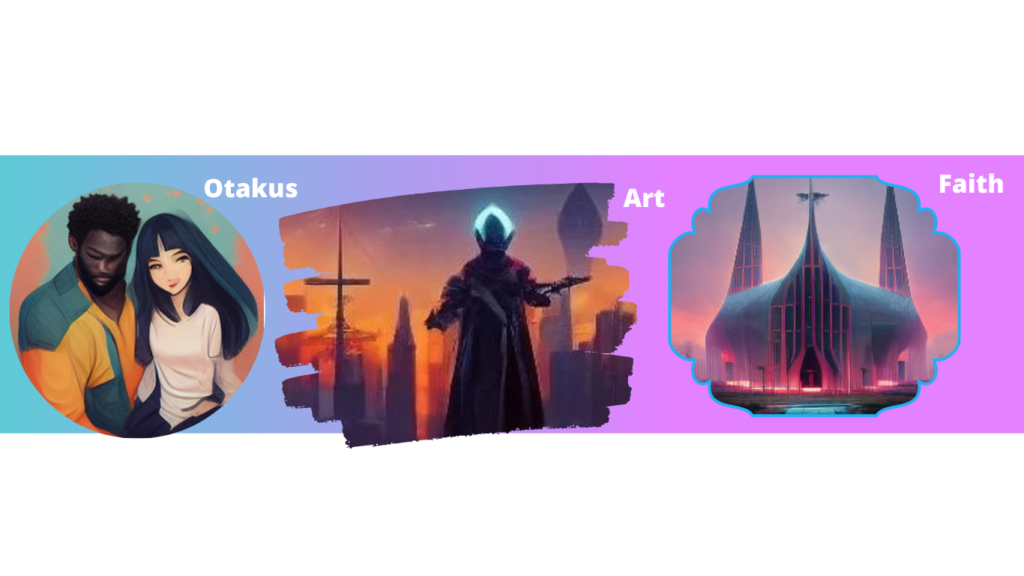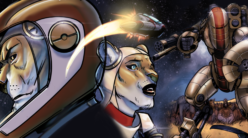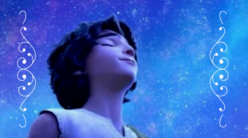
For kids who grew up in the 90s, the X-Men series has a special place in our hearts. Most of our parents were introduced to superheroes through comic books, we came to them through Saturday morning cartoons. Oftentimes these episodes made a lasting impression, which followed us far after our days of backyard make-believe. The “Nightcrawler” episode of X-Men is usually cited as one such story.
If you haven’t seen it, which you should it’s really good and streaming on Disney+, here’s a quick rundown. Rogue, Gambit, and Wolverine are on vacation in the Alps when they hear rumors of a demon terrorizing a nearby town. They decide to ski over to the village, but due to Gambit’s inexperience, he runs into a tree and causes an avalanche. Wolverine rescues his friends and takes them to a nearby Monastery which just so happens to lie up the road from the demon-infested hamlet. In pursuit of a monk who attempted to put the kibosh on an unconscious Gambit, Rouge and Wolverine run into the demon they were seeking, who is none other than Nightcrawler, who is a member of the order of monks who inhabit the monastery. Nightcrawler, who we also learn is the “demon” terrorizing the village, then tells the X-Men about how he was abandoned by his mother, worked in a circus, struggled with loneliness, and came to find a true friend in God. This upsets Wolverine, because of all the horrors he has endured, and committed, in his life. Meanwhile one of the monks, ignorant of mutants and fearful of the suspected Demon in his home, gathers a mob to kill or drive out Nightcrawler. In the fracas, the monastery is destroyed but nobody is hurt, the errant monk repents, and the townspeople no longer fear Nightcrawler. Later the three X-Men decamp to Paris, where Wolverine finds spiritual hope in a passage from Isaiah 12:1.
So, what does this all mean? In a recent interview with the Christian Nerds Unite podcast, Len Uhley, the writer of the episode, said that after a couple of drafts, it became clear that the story was “about faith and loss of faith”. If you’re unfamiliar, Nightcrawler looks extremely frightening: he has big glowing eyes, blue skin, a long tail, and can climb up walls. He’s rejected by most people he meets and, “should have every reason to not have faith, but has profound faith,” says Uhley. His faith gives him great resiliency. In the face of a mob set on killing him, Nightcrawler’s first instinct is for their safety, and with understanding, insists that they are only seeking his life because they are ignorant. When his home, the monastery is destroyed, he insists that the spiritual foundation of his life is more important than any man-made building. And through all the events of the episode, he tries to help Wolverine live with greater hope and faith, teaching him to “see the world with new eyes.”
Wolverine is the one who changes the most throughout the episode. At the start of the story he says to himself “Happy? Don’t know the meaning of the word,”. In truth, it is his quest for inner peace which is the center of Wolverine’s inner conflict for the episode. “Don’t talk to me about God,” he says as Nightcrawler tries to share his joy in Christ with him. “What kind of a God would allow this to happen,” he then brandishes his adamantium claws, the product of the heinous experiments on his body. Wolverine carries his sins with him as well, “I’ve done too much,” he says at one point. His pain and sins have so long defined him that he can no longer see himself apart from them. In his own eyes, he is merely the sum total of all the evils he has had to endure. This is why Nightcrawler’s kindness angers him so: to look beyond his past is to begin to construct an entirely new identity for himself, and consequently cast off his old one, a trying task for any of us. It is only when he is able to view this transformation as part of his journey to God, that Wolverine can begin to see himself anew. So, we come to the final dramatic scene in the Parisian church where Rouge overhears him reading Isaiah, “I will give thanks to You, LORD; For although You were angry with me, Your anger is turned away, And You comfort me.”
We learn from “Nightcrawler” that faith is a guide and a stay in the chaos and pain of this life, and God can heal the most broken-hearted, by giving us a new, charitable and hopeful way of reading the events of our lives and the world. Good medicine for dark times indeed.
You can watch “Nightcrawler” and all of the other episodes of the 90’s X-Men on Disney+, and you can watch Len Uhley’s interview with Christian Nerds Unite here






